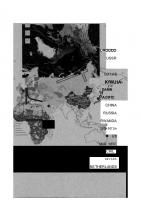Joža Uprka 1861-1940. A European from the Moravian-Slovak Countryside, 2011 9788070354834
194 37 84MB
English Pages 118 [114] Year 2011
Recommend Papers
File loading please wait...
Citation preview
Helena Musilova
Evropan sloviickeho venkova
1861-194(
M~s t s k& knih ov na knih.
58 odd .
1
S 23666
S3blfl
ex.
1
This exhibition is held under the patronage of Milan Stech, President of the Senate of the Parliament of the Czech Republic, and Petr Necas, Prime Minister of the Czech Republ ic. We owe our special than ks to the Senate of th e Pa rliament of the Czech Republic for its support of th is project. We owe our thanks to Postova ban ka, a.s. and Z-Group a.s. for their financial support.
The National Gallery in Prague and the Moravian Slovakia Foundation wish to thank the follow ing institutions and private collecto rs for their kind loans of reproductions : The Gallery of Art in Hodon fn, The Regiona l Gallery of Fine Arts in Zl fn, The Moravian Gallery in Brno, The Olomouc Museum of Art, The National Institute of Folk Cu lture, Straznice, The Museum of Czech Lite rature, The Roman Catholic Parish at Straznice, The Museum of Moravian Slovakia in Uherske Hradiste, The Slovak National Gallery in Bratislava, The West Bohemian Gal lery in Plzer'i and The Museum of Central Bohemia in Roztoky near Prague .
© Narodnf galerie v Praze, 2011 ISBN 978-80-7035-483-4
Contents "Labour, Joy, Piety"
6
Early Work
10
Faith
22
Portraits
34
The Colour Spot
42
Festivities
52
Work
64
Folk Costumes
78
Albums
92
Late Work
100
Joza Uprka - Biography
112
"Labour, Joy, Piety"
"Josef Uprka is a young Slovak, who had set firm goals for himself early in his artistic career. For it has been his wish to become a faithful depicter of his people in whose midst his cradle hod stood, as well as an interpreter of the folk's customs and traditions, of its few joys and great many hardships - all of this through the universal language of the fine arts': wrote Vilem Weitenweber in the Zlat6 Praha (Golden Prague) journal, expressing with near precision the future significance of the artist's work. A born draughtsman and painter, Uprka was characterized by his artist colleagues as being hot-headed and stubborn. His art was a combination of the innovative painting methods of the Fin de Siecle and the traditional, centuries-old folk art of his native Moravian Slovakia (51ov6cko, in Czech), a relatively small region situated on the border between Moravia and Slovakia. The area's hard-working peasants, who honoured the rich local traditions, were a lifelong inspiration to Uprka, and the principal theme of his creative output. Joza Uprka was born in 1861 in Slovacko, in the village of l










